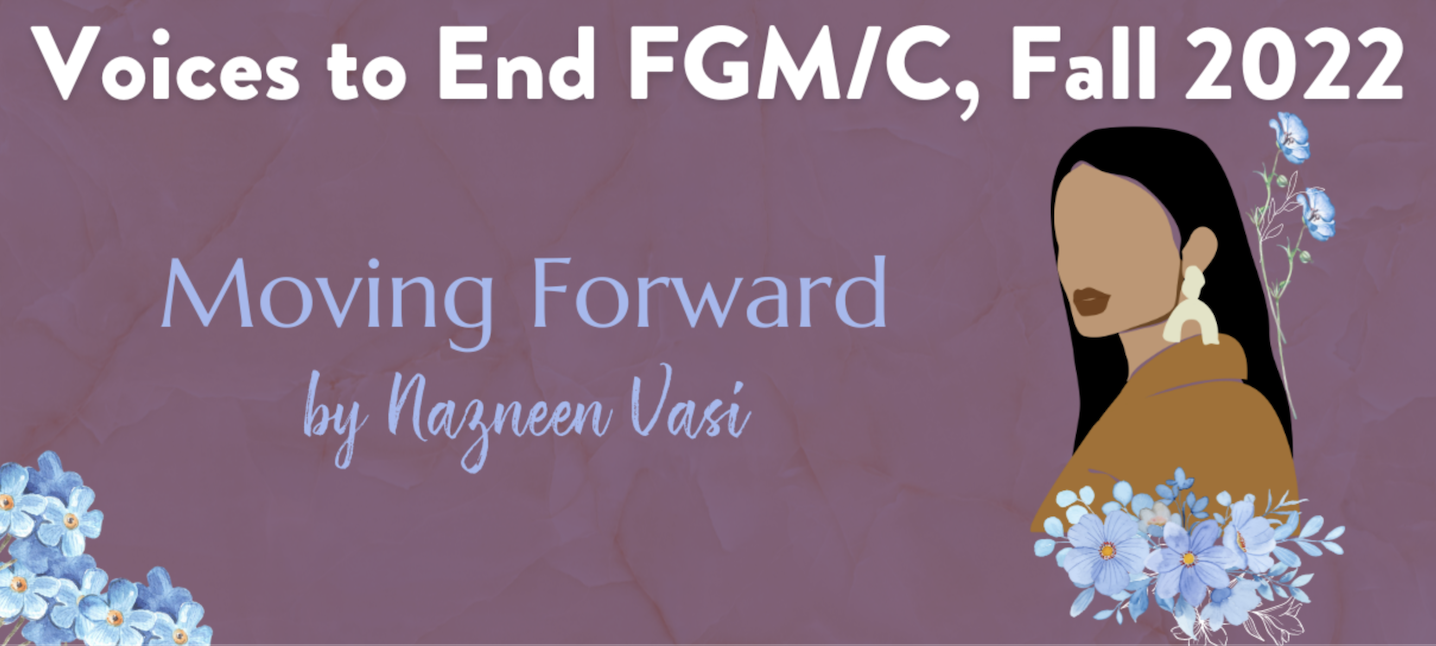By Nazneen Vasi
The topic of Khatna, also known as female genital cutting (FGC), has always been interesting. Within my family, there are those who are against it, and those who support it.
It is clearly not a religious custom, but more cultural. How did it even become a part of our culture? And why are community members advocating for FGC? In my opinion, there is no science or logic to legitimize this practice– just blind faith in the leaders of the community.
I joined the Voices to End FGM/C workshop to share my journey with FGC. My parents did not participate in this custom, and thus I was spared from being cut. A big thank you to them!
However, I have many family members and friends who have told me their stories. Among the stories, there are so many similarities. 7 years old, summer holidays, rickety old stairs, elderly lady, pain, the promise of ice-cream. Then as they became teens, and entered their 20’s, the realization and full physical, emotional, and mental impact of what had happened.
Then: why did it happen to me? There is no answer, except that it was done and continues to be done.
The workshop has been incredible, learning the stories of other people, their honesty, reading their emotions, how they have coped, and moved forward. It takes courage to accept what has happened and even more courage to speak about it to strangers.
As a pelvic physical therapist, I help women with pelvic rehabilitation throughout their lifespan. I want women to be aware about the resources available for them and their pelvis:
- Health care providers, including medical doctors, talk therapists, and physical therapists who specialize in all things pelvic.
- Organizations, blogs, and medical journal articles.
- Community groups
As was the case in the Voices workshop, we should celebrate each other and work together, educating each other to stop this practice, and protect future generations.
Nazneen Vasi belongs to the Bohri community and advocates against the cultural practice of FGM/C. She currently resides in NY and works in women's health rehabilitation.
Disclaimer
This blog was produced by Sahiyo under 15POVC-21-GG-00988-NONF, awarded by the Office for Victims of Crime, Office of Justice Programs, U.S. Department of Justice. The opinions, findings, and conclusions or recommendations expressed in this guide are those of the contributors and do not necessarily represent the official position or policies of the U.S. Department of Justice.

